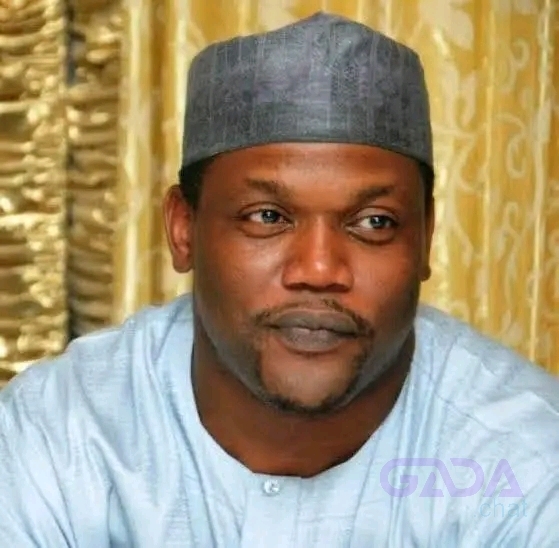Why Muslims do not use coffins to bury their dead
Have you ever wondered why most Muslims are not buried in coffins? If you have ever attended a Muslim funeral, you might have noticed that the dead is usually wrapped in a white cloth and buried directly in the ground without a coffin.
This is unlike many parts of the world where coffins are considered a standard part of burial. In case you are wondering, this practice is deeply rooted in religious teachings and cultural values that emphasize simplicity, humility, and a return to nature. Here’s a little more insight;
1. It’s linked to Prophet Muhammad
Burying the dead without a coffin in Islam is a practice that follows the example set by Prophet Muhammad. It is said that after his death, the Prophet was wrapped in a simple white cloth (known as a kafan) and buried directly in the ground without a coffin.
His companions continued this practice, and it has remained the standard in Islamic tradition to this day.
2. It signifies simplicity and equality in death
One of the core principles in Islamic burial is the idea of equality. Death is seen as the great equalizer, where rich and poor, powerful and powerless, all return to their Creator in the same way.
To reflect this, the body is wrapped in a plain white shroud which is usually three pieces for men and five for women. This is accompanied with no fancy clothing or jewelry. By avoiding the use of ornate coffins, Muslims ensure that burial remains humble and modest, regardless of a person’s status in life.
3. It signifies returning to the earth naturally
The Qur’an emphasizes the natural cycle of life and death. A verse in Surah Taha (20:55) states: “From the earth We created you, and into it We shall return you, and from it We shall bring you forth once more.”
Being buried directly in the soil allows the body to decompose naturally and return to the earth, fulfilling this spiritual concept.
Many Muslims believe that placing the body in a coffin interferes with this process and creates an unnecessary barrier between the deceased and the earth.
4. Exceptions and legal considerations
While the major practice is burying without a coffin, there are some exceptions in certain regions, including parts of Nigeria and Western countries.
Local laws, the condition of the burial site or health regulations may require the use of a coffin or burial vault.
In such cases, Muslims still strive to follow religious guidelines such as wrapping the body in a shroud and laying it in the coffin in a way that respects Islamic customs.
In conclusion, avoiding coffins in Islam is a part of a broader commitment to modesty, equality, and a return to the earth in the most natural and humble way. It’s a reminder that in death, just as in life, simplicity holds great significance.
Have you ever wondered why most Muslims are not buried in coffins? If you have ever attended a Muslim funeral, you might have noticed that the dead is usually wrapped in a white cloth and buried directly in the ground without a coffin.
This is unlike many parts of the world where coffins are considered a standard part of burial. In case you are wondering, this practice is deeply rooted in religious teachings and cultural values that emphasize simplicity, humility, and a return to nature. Here’s a little more insight;
1. It’s linked to Prophet Muhammad
Burying the dead without a coffin in Islam is a practice that follows the example set by Prophet Muhammad. It is said that after his death, the Prophet was wrapped in a simple white cloth (known as a kafan) and buried directly in the ground without a coffin.
His companions continued this practice, and it has remained the standard in Islamic tradition to this day.
2. It signifies simplicity and equality in death
One of the core principles in Islamic burial is the idea of equality. Death is seen as the great equalizer, where rich and poor, powerful and powerless, all return to their Creator in the same way.
To reflect this, the body is wrapped in a plain white shroud which is usually three pieces for men and five for women. This is accompanied with no fancy clothing or jewelry. By avoiding the use of ornate coffins, Muslims ensure that burial remains humble and modest, regardless of a person’s status in life.
3. It signifies returning to the earth naturally
The Qur’an emphasizes the natural cycle of life and death. A verse in Surah Taha (20:55) states: “From the earth We created you, and into it We shall return you, and from it We shall bring you forth once more.”
Being buried directly in the soil allows the body to decompose naturally and return to the earth, fulfilling this spiritual concept.
Many Muslims believe that placing the body in a coffin interferes with this process and creates an unnecessary barrier between the deceased and the earth.
4. Exceptions and legal considerations
While the major practice is burying without a coffin, there are some exceptions in certain regions, including parts of Nigeria and Western countries.
Local laws, the condition of the burial site or health regulations may require the use of a coffin or burial vault.
In such cases, Muslims still strive to follow religious guidelines such as wrapping the body in a shroud and laying it in the coffin in a way that respects Islamic customs.
In conclusion, avoiding coffins in Islam is a part of a broader commitment to modesty, equality, and a return to the earth in the most natural and humble way. It’s a reminder that in death, just as in life, simplicity holds great significance.
Why Muslims do not use coffins to bury their dead
Have you ever wondered why most Muslims are not buried in coffins? If you have ever attended a Muslim funeral, you might have noticed that the dead is usually wrapped in a white cloth and buried directly in the ground without a coffin.
This is unlike many parts of the world where coffins are considered a standard part of burial. In case you are wondering, this practice is deeply rooted in religious teachings and cultural values that emphasize simplicity, humility, and a return to nature. Here’s a little more insight;
1. It’s linked to Prophet Muhammad
Burying the dead without a coffin in Islam is a practice that follows the example set by Prophet Muhammad. It is said that after his death, the Prophet was wrapped in a simple white cloth (known as a kafan) and buried directly in the ground without a coffin.
His companions continued this practice, and it has remained the standard in Islamic tradition to this day.
2. It signifies simplicity and equality in death
One of the core principles in Islamic burial is the idea of equality. Death is seen as the great equalizer, where rich and poor, powerful and powerless, all return to their Creator in the same way.
To reflect this, the body is wrapped in a plain white shroud which is usually three pieces for men and five for women. This is accompanied with no fancy clothing or jewelry. By avoiding the use of ornate coffins, Muslims ensure that burial remains humble and modest, regardless of a person’s status in life.
3. It signifies returning to the earth naturally
The Qur’an emphasizes the natural cycle of life and death. A verse in Surah Taha (20:55) states: “From the earth We created you, and into it We shall return you, and from it We shall bring you forth once more.”
Being buried directly in the soil allows the body to decompose naturally and return to the earth, fulfilling this spiritual concept.
Many Muslims believe that placing the body in a coffin interferes with this process and creates an unnecessary barrier between the deceased and the earth.
4. Exceptions and legal considerations
While the major practice is burying without a coffin, there are some exceptions in certain regions, including parts of Nigeria and Western countries.
Local laws, the condition of the burial site or health regulations may require the use of a coffin or burial vault.
In such cases, Muslims still strive to follow religious guidelines such as wrapping the body in a shroud and laying it in the coffin in a way that respects Islamic customs.
In conclusion, avoiding coffins in Islam is a part of a broader commitment to modesty, equality, and a return to the earth in the most natural and humble way. It’s a reminder that in death, just as in life, simplicity holds great significance.
0 Commentarios
0 Acciones
13 Views
0 Vista previa










